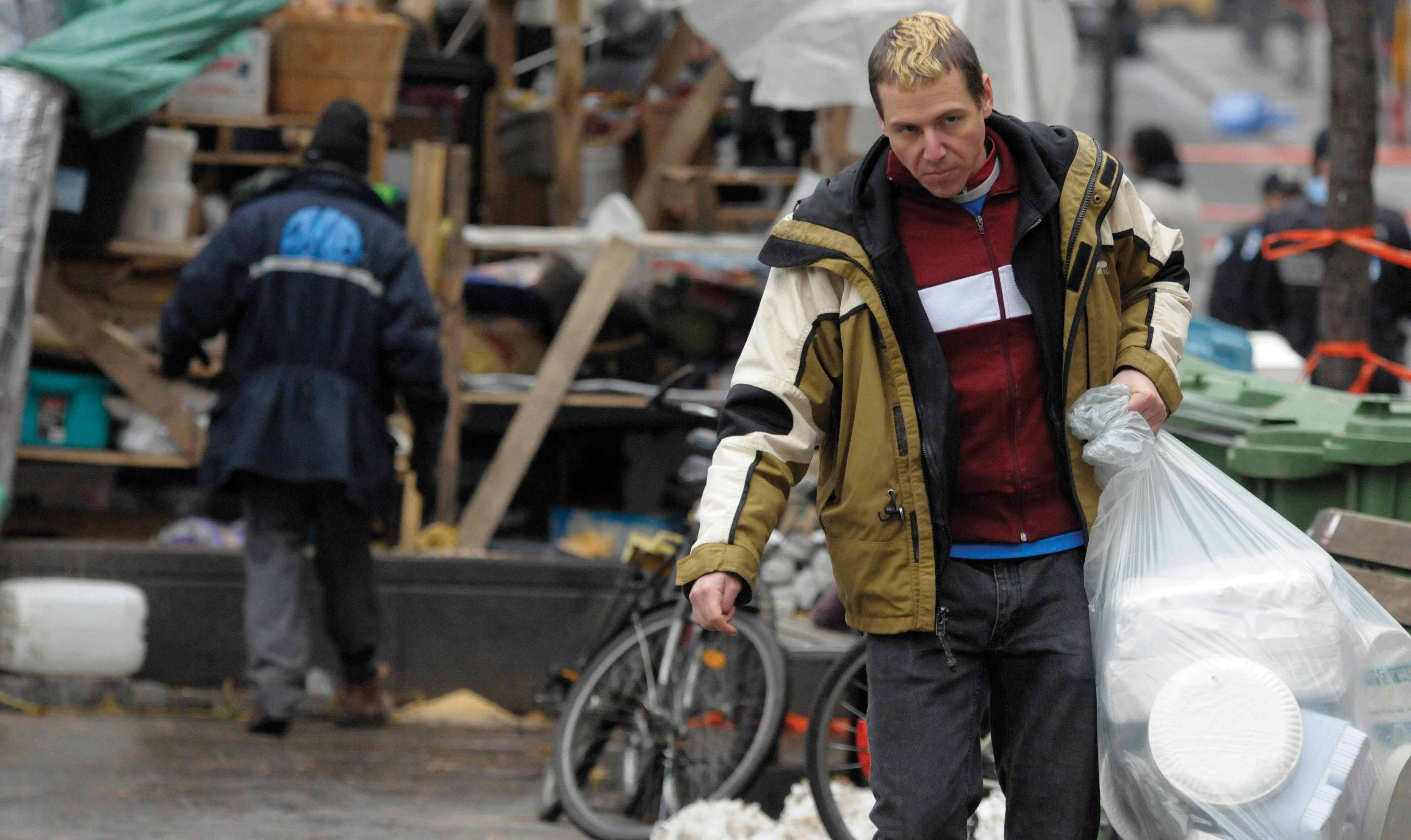At least 300 people, including two school buses packed with bugle-blasting, banner-waving Confédération des syndicats nationaux (CSN) workers on their lunch break, migrated back to Victoria Square on Saturday afternoon to attend the assembly. Police cars were stationed throughout the square and officers kept an eye on the proceedings.
“We came to support the cause,” said CSN union member Patrice Caron. “We need to [make some demands], we have to tax the richest people and corporations and give to the poor.”
It was the first GA since the eviction and while the tent-village is gone, the spirit of the movement remains intact, with ambitions to become more than a two-month experiment in occupying a public square.
Speakers, accompanied by an enthusiastic drumline, continued to denounce the elitist values within society and issued words of encouragement echoing the belief that the ‘Occupy’ movements have already changed and will continue to change the world for the better.
“Part of me is mourning the camp,” said GA speaker Alain Berger, who had been living in Victoria Square for 27 days before the eviction. “At the same time, there’s the hope that this will give us the opportunity to expand and take the movement further.”
The GA focused on maintaining feelings of unity and solidarity within the movement after the loss of the village, and coming up with new ideas for how to implement ‘Phase 3.’
“The goal today is to gather ideas from people about where the movement should go and what they think the movement should be about,” said Berger.
Activists highlighted attempts by Occupy Wall Street protesters to ‘occupy’ the New York Stock Exchange after being evicted from Zuccotti Park as the type of action to expect from Occupy Montreal in the near future.
“Big huge public demonstrations. That’s what Phase Three is all about,” said Jay, an occupier who declined to give his last name, on Friday.
Montreal police officers in both regular uniform and riot gear arrived at 9 a.m. on Friday and told the residents of the tent-village to pack up and get out. While most occupiers left without incident, 16 were apprehended during the eviction for refusing to cooperate, at least one of whom claims he was mistreated in the process.
Musician Adam O’Callaghan claims to have sustained an arm injury Friday when two officers forced him to cooperate with eviction orders by bending his wrist downward while the other officer squeezed pressure points at the back of his neck beneath his ears.
“I was screaming,” said O’Callaghan. “There was an officer whispering, ‘If you want the pain to stop you’re gonna start walking.’”
O’Callaghan said treatment he received at the hands of police was unexpected and shocking.
“We were peacefully resisting [to leave] a public space that we have every right to be in. I didn’t think that with police in Canada you would have this kind of pain imposed on people trying to use their right to assemble and discuss,” he said.
Police officers stationed near the GA on Saturday said they are not at liberty to discuss Friday’s eviction.
O’Callaghan, along with about 15 others, had decided to protest the eviction by tying himself to the village’s food tent and later refusing to comply with officers’ demands to walk out of the camp. Those apprehended during the eviction were photographed and banned from the premises for 24 hours, then released at Vendôme Metro station where police paid for their fares and sent them on their way.
A free concert was held in Victoria Square after the GA, showcasing local acts, including political comedians Les Zapartistes and members of Bran Van 3000.
